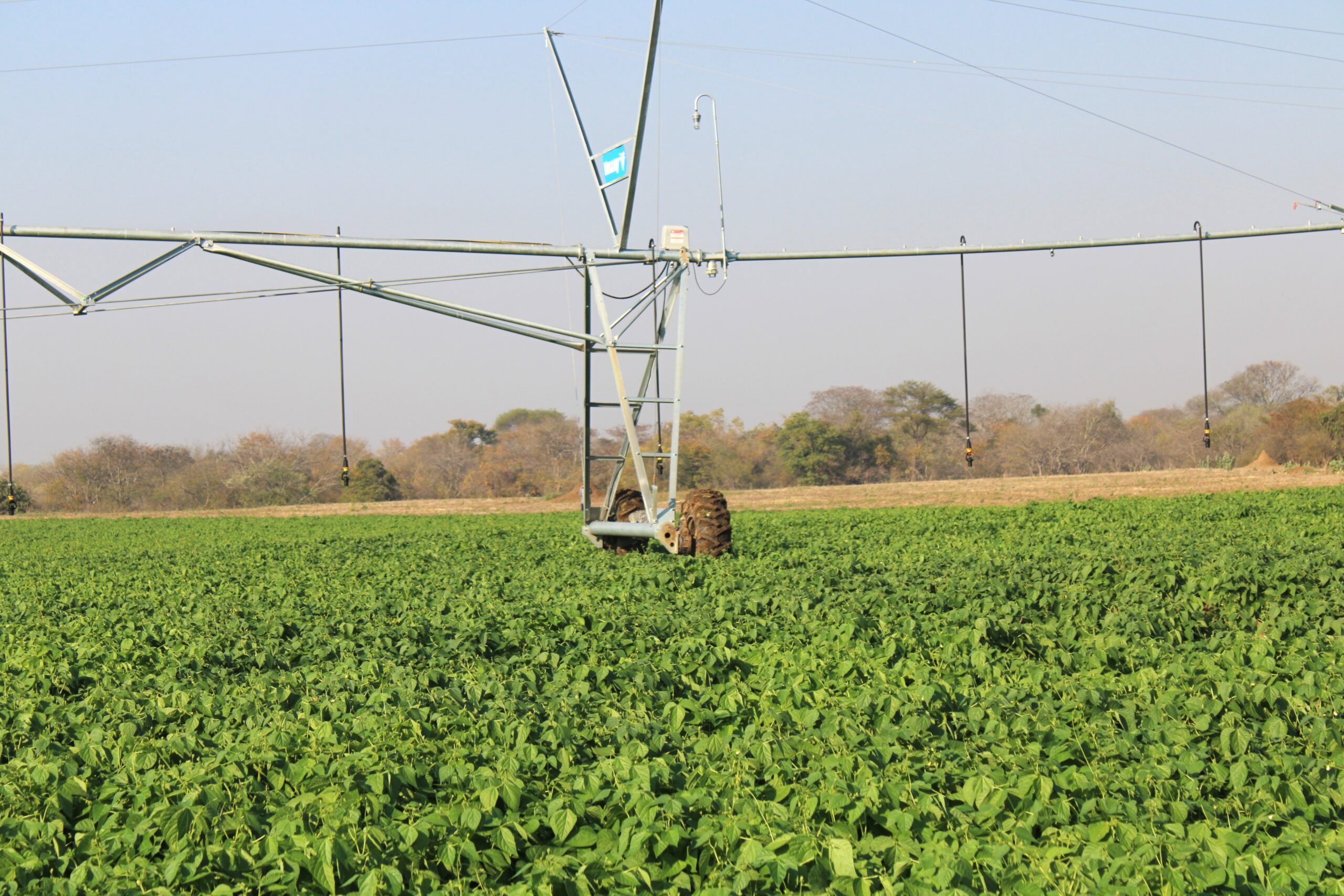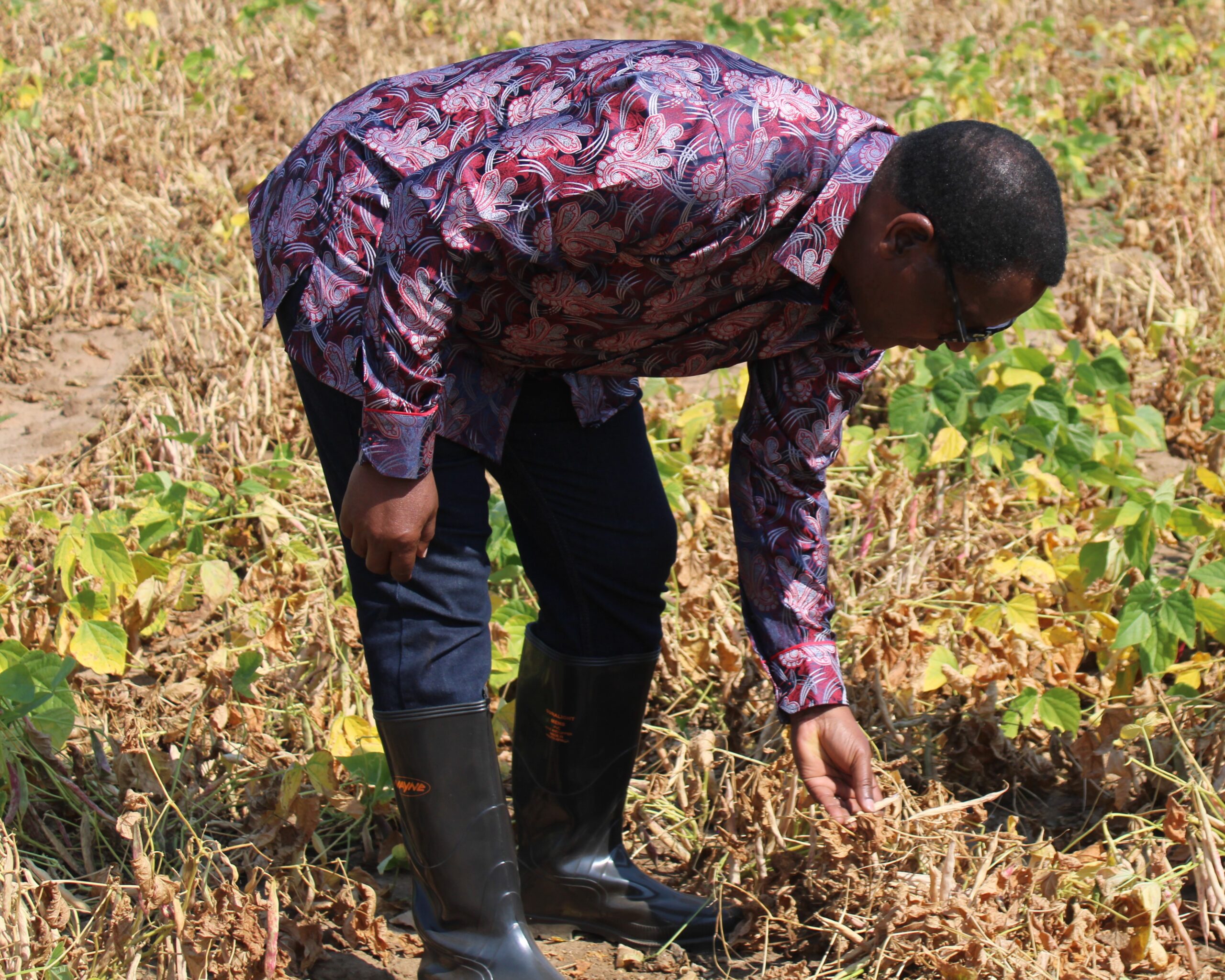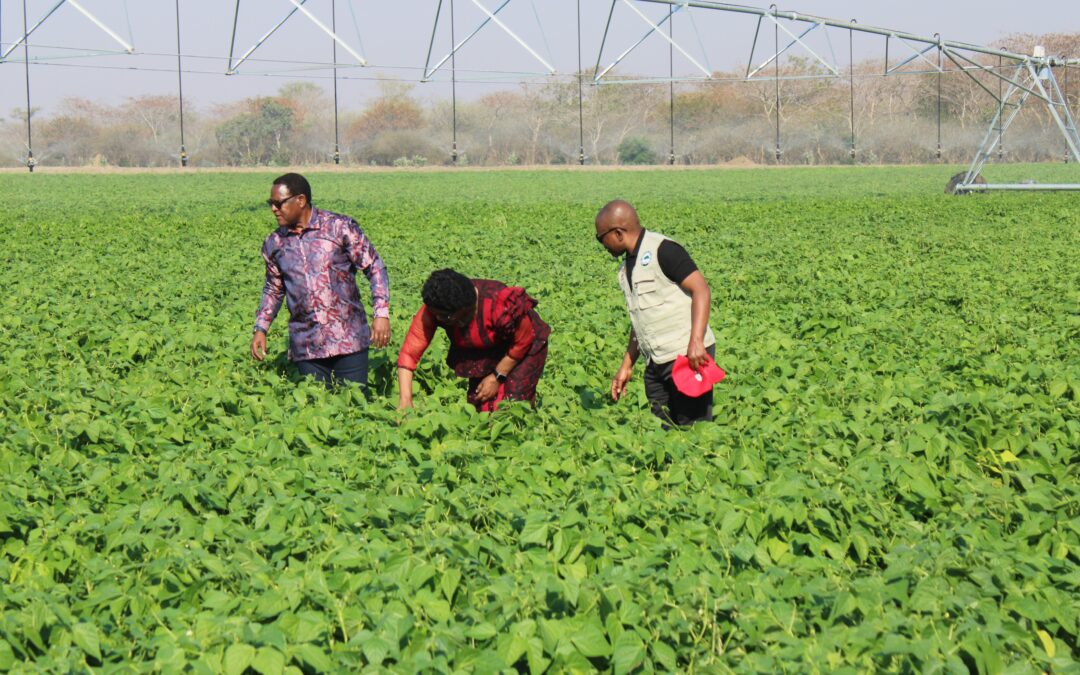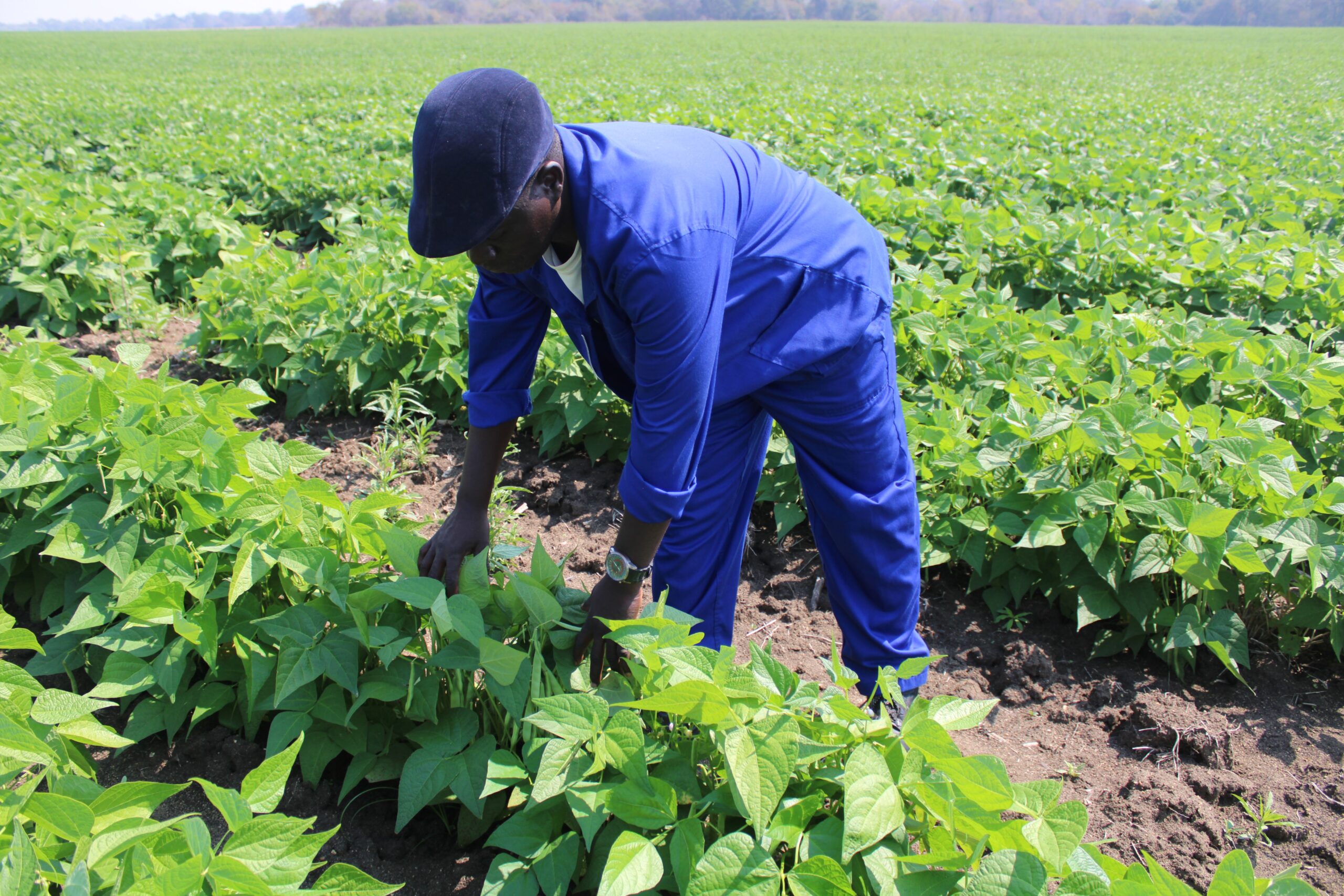By Yohane Chideya, Wilson Nkhata & Jean Claude Rubyogo
Common bean farming in Malawi is of paramount importance, deeply influencing the agricultural landscape. This vital legume not only enriches the diet with essential fiber, minerals, and protein, complementing the maize-heavy diet, but is also gradually emerging as a significant commercial crop for both smallholder and larger-scale farmers.
Despite its potential, Malawi’s common bean yields are notably low, at under 0.7 tons per hectare, while neighboring Tanzania achieves 1.3 tons per hectare. This gap stems from several factors including shortage of high-quality seed of climate resilient, farmer and consumer preferred varieties. Consequently, Malawi only meets 7% of the market demand for premium certified bean seeds, leaving a substantial 350,000 hectares of land underutilized.
In contrast, the common bean has proven to be a lucrative source of foreign exchange elsewhere. Ethiopia, for instance, has consistently earned around $100 million annually over the years from bean exports by effectively utilizing its 355,550 hectares for cultivation.
Creating partnerships to expand seed supply

Fig. 1: A cross-section of common beans being irrigated at DAL’s Farm in Balaka – Picture by Yohane Chideya
For decades, Malawi has struggled with forex shortages, widespread malnutrition, and food scarcity. Recognizing the common bean as a part of the solution, the Alliance of Bioversity International and CIAT through Pan-Africa Bean Research Alliance (PABRA-Africa), has been revitalizing the bean value chain by fostering and maintaining partnerships to scale up seed production. By collaborating with the Ministry of Agriculture, its departments, the private sector, farmers, and other stakeholders, PABRA has spearheaded various interventions for nearly thirty years to maximize the legume’s full potential.
Since 1996, through PABRA, the Department of Agricultural Research Services (DARS) and the Malawi National Bean Breeding Programme (MNBP) has released over 30 bean varieties and has ensured widespread awareness through seed exhibitions and field days. These efforts have highlighted the varieties’ disease resistance, higher yields, early maturity, marketability, taste, and nutritional benefits.
Through concerted efforts by the Ministry and seed certification bodies like the Malawi Seed Services Unit, local seed production was decentralized by issuing certificates to local producers. This initiative has encouraged a growing number of farmers to engage in seed multiplication. In the early 2000s, the Alliance/PABRA, in collaboration with MNBP, introduced new bean varieties, distributing them in packs of 100, 250, and 500 grams via rural outlets through the small pack delivery model.
Although this was initially a one-off activity, it significantly improved seed access for farmers. However, sustainability became an issue due to the lack of private sector involvement. To address this gap, partnerships were formed with private seed suppliers, such as Demeter Agriculture Limited (DAL), to scale up seed supply. This included providing basic seed of preferred varieties to DAL and ensuring ongoing support services like seed multiplication and technical assistance from DARS and CIAT/PABRA throughout all seed multiplication cycles.
This collaboration marked a pivotal advancement in seed production, and in 2006, DAL produced 394.86 tons of bean seed after receiving 200 kilograms of breeder seed from CIAT/PABRA (https://www.jstor.org/stable/44161040). The involvement of the private sector sparked increased interest in bean seed commercialization, with Kholophethe, being a highly preferred sugar bean variety, accounting for 84% of the seed supply.
This transformation was achieved by ensuring that basic seed of preferred varieties was consistently available at DAL and by providing essential support services. Ongoing interactions and backstopping visits from the MNBP also played a role in strengthening DAL’s seed production and supply capabilities. As a result, DAL joined the Malawi Bean Platform, a network for stakeholders in the bean value chain. With continued growth, the company has been purchasing fresh breeder seed from DARS, and the number of participants in bean seed production and marketing has steadily increased.
This collaboration led to a 73% increase in seed supply, reaching 1.25 million small-scale farmers. During this period, seed companies supplied 89.5% of the total bean seed, demonstrating their dominance in the market. Through this public-private partnership, DAL along with the MNBP in partnership CIAT-PABRA, delivered 2,559 tons of certified bean seed between 2009 and 2012 under the government’s targeted Farm Input Programme.
Following this, the number of households accessing improved varieties grew from 264,661 in 2009 to 344,200 in 2012. This rising demand and DAL’s effective responses suggest a solid foundation for building sustainable seed delivery systems, though decentralized systems will be necessary to cater to varieties suited to specific micro-ecological conditions.
Today, DAL has experienced remarkable growth and expansion. Located at the base of Malawi’s largest river, the Shire, in the southern district of Balaka, DAL is pivotal in transforming the country’s bean value chain. The company now manages over 8,000 hectares, including 6,000 hectares ideal for winter bean production, under irrigation in the Shire River’s water basin (Fig.1).
In 2022, another PABRA initiative, the Multi-Stakeholder Platforms (MSP), created valuable spaces for learning and knowledge exchange. Through MSP, various stakeholders have been collaborating to identify and address challenges affecting seed demand and production, as well as to explore opportunities for improvement. Funded by the Feed the Future Innovation Lab for Legume Systems Research, the project benefited over 100,000 smallholder farmers and facilitated their connections with off-takers.
New approaches to arrest hunger

Fig 3: Malawi Leader Lazarus Chakwera appreciating matured common beans cultivated at DAL’s Farm – Picture by Yohane Chideya
Agriculture is crucial to Malawi’s economy, contributing 30% to the Gross Domestic Product and employing about 80% of the active workforce, hunger remains a pressing issue. The latest MVAC report revealed that between October 2023 and March 2024, around 4.4 million Malawians—22% of the population—faced acute food shortages.
In response, the country has adopted new strategies to combat hunger. In 2023, President Lazarus Chakwera launched the ‘Mega Farms Initiative’, designed to boost foreign exchange reserves and achieve food self-sufficiency. This initiative includes securing markets for produce through the Ministry of Trade. President Chakwera views this as a “game-changer” for the economy, particularly as Malawi seeks alternatives to tobacco—its leading forex crop. Common beans therefore are poised to play a key role in generating forex revenue for Malawi in the future and will be part of the Mega Farm Initiative.
“But given the recent forex challenges due to debt, our long-term solution must focus on enhancing and intensifying agricultural productivity for export,” In the 2024/25 growing season, spanning December to March, nearly 1,000 medium and large-scale farmers have committed to cultivating various crops across over 63,000 hectares of land under the ‘Mega Farms’ initiative, offering prospects for greater food security and economic prosperity.
With the inclusion of common beans in the Mega Farms initiative, DAL is set to collaborate with the Malawian government on this agenda. The company plans to invest in new irrigation systems and other resources, aiming to increase bean production from the current 2.5 tons per hectare to approximately 3 tons per hectare, with annual bean seed production projected to exceed 18,000 tons.
In July 2024, President Chakwera, accompanied by Vice President Michael Usi and other senior officials, visited DAL’s farm in Balaka District to review progress in bean farming. The delegation was impressed by the farm’s advancements in common bean production.
On his part, DAL Managing Director, Dimitri Jimmy Giannakis, who believes in the power of agriculture in driving economic growth, hails the government’s leadership for showing support. He said: “All these years we have discovered that common beans do well in this area. Rainfall is quite low, so irrigation is key (Fig. 1). Commons beans are a viable option crop when it comes to diversifying the country’s exports. However, we cannot do this alone, we need support in different areas such as irrigation.”

Fig 4: Giannakis (left) briefing President Chakwera (second right), as Usi (middle) and Kawale (in green cap) look on – Picture by Yohane Chideya
Malawi’s Minister of Agriculture, Sam Kawale, highlighted, “The Ministry, through the Mega Farm Support Unit, is working closely with this farm to achieve goals of ending hunger, creating jobs, and boosting forex earnings.”
With the dynamic partnership between the Malawi government and DAL, bolstered by technical expertise from CIAT/PABRA, there is a promising transformation underway in Malawi’s bean value chain. This collaboration has the potential to elevate Malawi to the forefront of common bean exportation in Africa, positioning the country as a leading player in the global bean market.


